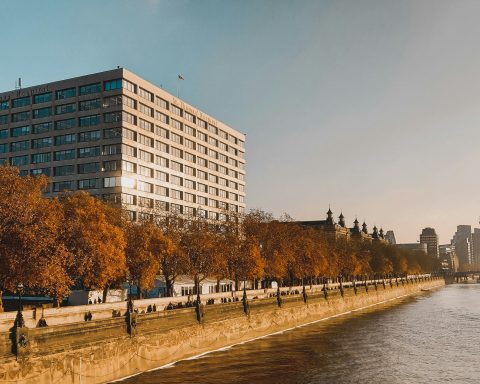
What has been happening?
General practices and staff have been facing violent behaviour or aggression from members of the public.1,2 The incidence of suffering occupational violence varies among healthcare professionals and healthcare settings but is found to be high among GPs.3 Aggression towards healthcare workers is a global public health concern – with adverse effects on individuals, organizations, and societies.4,5 Since the COVID-19 pandemic, such incidents have been rapidly escalating in frequency and severity.5
According to the BMA’s survey of GPs, almost 85% of respondents reported witnessing verbal abuse..
Verbal abuse and threats are the most common undesired behaviour in nurses and doctors.3,4,6 According to the BMA’s survey of GPs,7 almost 85 per cent of respondents reported witnessing verbal abuse directed at other staff in their workplace, with around 8 per cent witnessing physical abuse. Over 65 per cent stated they had experienced verbal abuse themselves at work. GP teams have reported unforeseen levels of abuse including graffiti, receiving hate emails/abusive messages, people breaking doors down and threatening to stab them.1,8
Violence in the GP workplace is defined as, ‘any incident where a GP or his or her staff are abused, threatened or assaulted in circumstances related to their work, involving an explicit or implicit challenge to their safety, well-being or health’.9 Individual staff members respond differently to abuse and under-reporting is well documented.5,10 Some staff hesitate to report incidents of aggressive behaviour or perceive abuse to be part of the job.8
Work-related incidents are often linked to disinhibition caused by taking alcohol or drugs, long waiting times, the discrepancy between patients’ expectations and services, or mental illness.5,10 According to humanitarian organizations, misinformation in respect of COVID-19 and adverse care outcomes led to an increase in violence against doctors.5 In the UK, a perception that the general practice is ‘closed’ and reduced face-to-face consultation availability has been mentioned as a reason for frustration and abusive behaviour.11
So what?
The public and GPs admit there are difficulties in accessing healthcare. Primary care deals with about 90% of patient contacts for under 10% of the national healthcare budget. This, coupled with soaring complexities of GP workload and diminishing workforce results in the general practice struggling to meet the ever-increasing demand.1,11 Continuous criticism and blame across the media, based on misinformation about how practices are delivering their services to patients,7,11 has resulted in the profession feeling under-appreciated and demoralised, with a crisis of mental health and well-being.6,11 Besides, increased levels of abuse exacerbate staff shortages through sickness-absence and retirement, adding to the pre-pandemic GP workforce crisis.1
Violence against staff causes pain, distress, burnout and even disability or death.12 Serious or persistent verbal abuse or threats can also damage employees’ health through anxiety or stress. For the employers, it can lead to low morale and a poor organisational image, making it difficult to recruit and retain staff; Absenteeism, higher insurance premiums and compensation payments can result in added costs,12 causing continuing concerns about our profession and putting additional pressure on the wider NHS services.
The Department of Health launched the NHS Zero Tolerance Zone campaign in October 1999, announcing that aggression, violence and threatening behaviour will no longer be tolerated by staff working in the health service.9 Although violence and threats of violence are common in primary care, many GPs pay little attention until they or their staff are assaulted.10
What now?
Urgent action must be taken nationally to protect all NHS staff, so they feel supported and safe in their roles.
So what now, given that we know that abuse against healthcare workers is a UK primary care phenomenon and that it is causing harm and making the overall situation worse? (See reflection framework – 3 whats!13) Urgent action must be taken nationally to protect all NHS staff, so they feel supported and safe in their roles. As employers, GPs have a legal obligation to ensure that staff health, safety and welfare at work are protected. At the practice level, we need to take steps to ensure our staff have a safe working environment, along with means to minimise the risk of abuse from patients.
Introducing a zero-tolerance policy is not enough. Raise public awareness (via practice website, waiting room etc.) and be clear that violence against the staff is unacceptable. Encouraging team members to ‘own’ the potential problem of violence, and speak about their experiences with the rest of the team is crucial. Add ‘staff abuse’ as a recurring agenda item in team meetings to share staff concerns. Train staff in how to de-escalate an evolving violent situation. Offer support and advice services for the victims, including guidance and training to other staff. Have a system in place to monitor and record all events of violence, including verbal abuse and threats, promptly and fully. Encourage staff to reflect and treat each incident as a learning experience. Ensure physical security measures (e.g., panic buttons in consulting rooms) are in place. Regular staff training and education (approved training in the recognition, defusing skills, disengagement and immobilisation) is a necessity. By following simple practical steps, we may be able to mitigate abuse experienced by staff.
Any type of abusive behaviour is unhealthy and unacceptable. The community need to be continuously reminded that the NHS staff are human beings, who try their best to care for patients. They deserve to be treated with the safe courtesy and respect. The public also needs to have realistic expectations of what primary care can provide within the exhausted workforce, demanding workload and limited resources. It is crucial to increase public awareness of the zero-tolerance policy towards violence and aggression, and reiterate the importance of working in collaboration with healthcare professionals for effective high-quality patient care.
References:
1. The Guardian view on attacks on GPs: the NHS is under threat | Editorial | The Guardian
2. Oxtoby, K. ‘Practice staff suffering increasing levels of abuse’. Nursing in Practice 2021; 3 Jan: https://www.nursinginpractice.com/latest-news/practice-staff-suffering-increased-levels-of-abuse/
3. Joa TS, Morken T. Violence towards personnel in out-of-hours primary care: A cross-sectional study. Scandinavian Journal of Primary Health Care, 2012;30:55-60. https://www.ncbi.nlm.nih.gov/pmc/articles/PMC3337531/
4. Feng, J., Lei, Z., Yan, S. et al. Prevalence and associated factors for workplace violence among general practitioners in China: a national cross-sectional study. Hum Resour Health 20, 42 (2022). https://human-resources-health.biomedcentral.com/articles/10.1186/s12960-022-00736-x
5. Gautam Gulati, Brendan D Kelly, Colum P Dunne, Liam Glynn, Rise in violence in general practice settings during the COVID-19 pandemic: implications for prevention, Family Practice, Volume 38, Issue 5, October 2021, Pages 696–698. https://academic.oup.com/fampra/article/38/5/696/6294165
6. News: Level of abuse of GPs must be “wake-up call” for policy makers, BMJ 2022; 377 doi: https://doi.org/10.1136/bmj.o1039 (Published 25 April 2022)
7. ‘On the edge: GPs in despair’. BMA 2022; 18 March : https://www.bma.org.uk/news-and-opinion/on-the-edge-gps-in-despair
8.‘Has abuse become the norm for NHS staff?’. the bmj opinion 2021; 7 Sep: https://blogs.bmj.com/bmj/2021/09/07/has-abuse-become-the-norm-for-nhs-staff/
9. NHS Executive. ‘Tackling violence towards GPs and their staff The NHS (Choice of Medical Practitioner) Amendment Regulations 1999’. Health Service Circular 2000;28 Jan: http://allcatsrgrey.org.uk/wp/download/nhs_circulars/health-service-circular/dh_4012168.pdf)
10. Wright NMJ, Dixon CAJ, Tompkins CNE, Managing violence in primary care: an evidence-based approach, British Journal of General Practice, 2003, 53, 557-562. https://www.ncbi.nlm.nih.gov/pmc/articles/PMC1314649/pdf/14694671.pdf
11. News Analysis: GPs are being blamed for government failures in primary care, say doctors, BMJ 2021; 374 doi: https://doi.org/10.1136/bmj.n2234 (Published 13 September 2021)
12. Health and Safety Executive. ‘Violence at work, A guide for employers’. Revised 10/96 : https://www.hse.gov.uk/pubns/indg69.pdf
13. Driscoll, J. J. (2007). Supported reflective learning: The essence of clinical supervision? In Practising clinical supervision: A reflective approach for healthcare professionals, second edition. London: Bailliere Tindall, pp.27–50.
Featured image by Neuvalence on Unsplash








